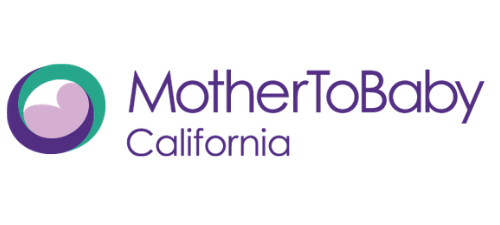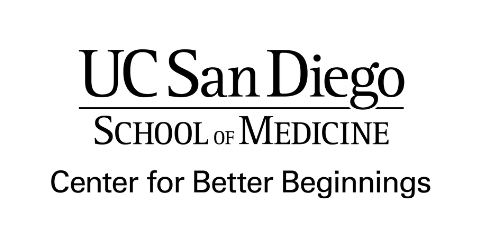Take Steps Toward a Healthier Me & Baby-To-Be!
The choices you make before and during pregnancy can make a big difference for you and your baby-to-be. The #KnowYourExposures campaign aims to bring health risks from exposures to the spotlight for expecting and future moms, so you can have a healthier pregnancy and a healthy baby.
Why does this matter? Because you and your baby are worth it! Certain exposures in pregnancy can cause birth defects and even long-term developmental or behavioral problems for a baby. Some of these exposure could include certain over-the-counter and prescription medications, infections, toxic chemicals, and recreational drugs. Knowledge is a powerful tool that can help you stay healthy and give your future baby the very best start in life!
Get Informed on the Issues
Black women have the lowest rates of first trimester prenatal care and the highest rates of infertility, premature birth, c-section deliveries, infant death, and maternal death.1 In some cases, the things a woman is exposed to can contribute to these outcomes. So what can you do? Take control of your health, and get the information you need to make the best possible decisions for you and your baby-to-be.


Did You Know?
Several exposures during pregnancy can affect your baby’s development. Alcohol is an example of one of these types of exposures that can result in birth defects and harm a baby’s brain.
Who We Are
MotherToBaby California can help you navigate through information regarding mom’s exposures — and how they can impact pregnancy health. We’re part of the non-profit alliance powered by the Organization of Teratology Information Specialists (OTIS), and we’re housed at the University of California, San Diego School of Medicine. We provide free, personalized risk and safety information about medications, vaccines, alcohol, and other exposures to pregnant and breastfeeding moms, and their healthcare providers. Have a question? Use the confidential form to the right to fill out your information so our expert information specialists can assist you!
What Knowledge Do You Need?
Know your exposures…if you get pregnant, your future baby will thank you for it! We can help inform you about a wide variety of exposures that may or may not pose a risk to your developing baby (what scientists call ‘teratogens’). Listed below are just a few types of exposures we can inform you about!

9 out of 10 women take a medication while pregnant, whether it is to treat general aches and pains or prescribed to them for chronic or acute health conditions. Does your medication pose a risk to your baby’s healthy development?

Do you have a cold or flu? Worried about how it will affect your developing baby or your milk supply when breastfeeding? There are certain cold and flu medications that are recommended for pregnant and breastfeeding women, and others that are not.

Moms with chronic health conditions (like asthma, diabetes, and many more) need to be on top of their health, especially during pregnancy. If you’re living with a medical condition and have questions about what your health condition(s) could mean for your pregnancy and your baby’s development, we can help!

Vaccines before and during pregnancy will help protect you and your baby from serious diseases, like the flu, whooping cough (pertussis), and rubella. Certain vaccinations during pregnancy also give your baby some protection after they are born but before they are allowed to receive their own vaccines.

Food safety is important in pregnancy in order to prevent serious infections, like listeria and E. coli. Raw or undercooked meats or seafood, deli meats, and certain cheeses are common culprits, but fruits and veggies can also be contaminated so you should pay attention to food recalls and outbreak warnings for food-borne illnesses.

Many women recognize that what you put in your body during pregnancy has the potential to reach the baby. But what about the things you put on your body like hair treatments, cosmetics, nail treatments and more?

Alcohol is the #1 cause of preventable birth defects, and is more damaging for a developing baby than heroin, cocaine or meth. Remember, when you’re pregnant or breastfeeding and you drink, your baby also drinks — and this can cause lifelong brain damage.

We don’t need to tell you what you already know – recreational drugs can be hazardous for your developing baby. Our service is 100% confidential and we can answer your questions about any substances you may have used while pregnant, including before you even knew that you were pregnant.

Using tobacco products (whether in the form of cigarettes, vapes, cigars, chew or others) while pregnant is not only harmful to your health, but it can expose your baby to some of those same harmful chemicals. Even being around cigarette smoke can lead to problems for your baby–so just toss them out now and do yourself, and your baby, good.

Zika, dengue fever, Lyme disease and other infections can be a result of an insect bite, and can be prevented with certain insect repellents. If you are unsure about the ingredients used in bug spays and their safety if you are pregnant, we can help you with this too!

When you travel, you may be exposed to different health risks than at home. If you’re pregnant, you may need to get vaccinations for certain destinations, while others may have health outbreaks that could pose a risk when you’re pregnant or planning a pregnancy, like Zika virus!

Remember to take a prenatal vitamin before and during pregnancy, as well as while breastfeeding. Getting enough folic acid is just one important step you can take to prevent birth defects.

Caffeine is a stimulant and is found in many beverages—not just coffee. Low levels of caffeine are OK if you’re pregnant, but remember that caffeine can also dehydrate you—so be sure to pick up a glass of water too!

Just because an ingredient comes from nature doesn’t mean it’s safe for baby-to-be. Herbal remedies and supplements are not regulated by the FDA for their safety and effectiveness – so ask our experts if your herbal product could pose a problem in pregnancy.

Toxic chemicals like lead can interfere with the health of pregnant women and their children. Avoid exposure to any known sources of lead like contaminated water and paint in homes built prior to 1973.

Pregnant women may be exposed to reproductive toxins in the workplace, and changes in the immune system and lung capacity can alter a pregnant woman’s interaction with these elements. Whether it’s chemicals, fumes, radiation, or something else—ask us about your potential job-related exposures.

Whether you love to garden at home or work in the fields or at a garden center, exposure to pesticides can pose a concern when you’re pregnant. Based on the products you’re exposed to, we can help you determine whether those concerns need to inspire a change.
Knowledge Is Power! So Ask Us to #KnowYourExposure!
What’s Your Question?
Fill out this form to ask our experts a question.
MotherToBaby California is a trusted source of evidence-based information on the safety of medications and other exposures during pregnancy and while breastfeeding. Our specialists answer questions for residents of Alaska, California, Hawaii, Idaho, Montana, Nevada, Oregon, Washington, and the US Territories of American Samoa, Guam, the Northern Mariana Islands, Puerto Rico, and the US Virgin Islands.




